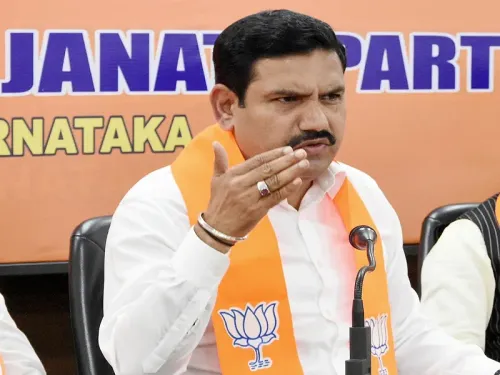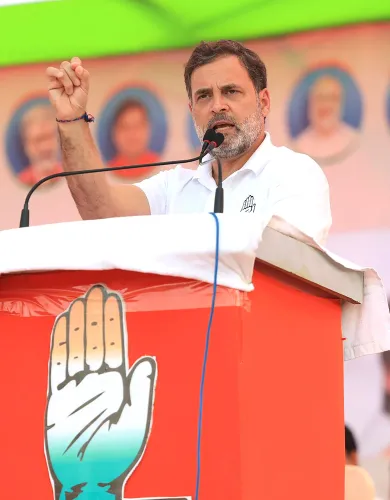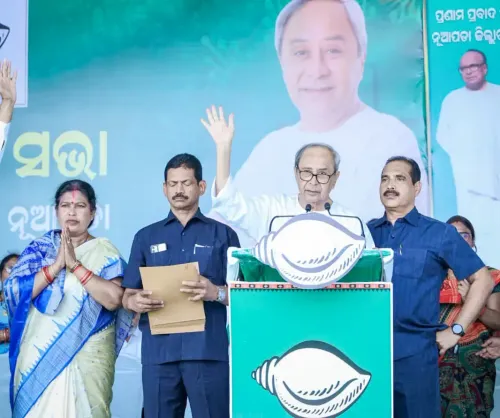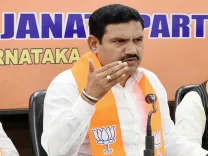Why Were 25 Individuals Detained in 3 NE States for Comments on the Pahalgam Terror Attack?
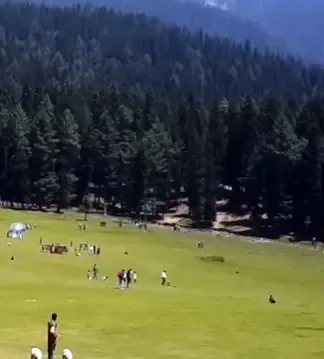
Synopsis
Key Takeaways
- 25 individuals arrested or questioned for controversial comments.
- Involvement of law enforcement in maintaining national integrity.
- Warnings against misinformation and provocative content.
- Legal actions under the National Security Act.
- Community vigilance is crucial in combating anti-national sentiments.
Guwahati/Agartala, April 27 (NationPress) - Law enforcement officials have detained or interrogated at least 25 individuals across three northeastern states - Assam, Tripura, and Meghalaya - due to controversial remarks made on social media following the Pahalgam terror attack that resulted in 26 fatalities, authorities reported on Sunday.
The individuals taken into custody or questioned include an MLA, a government employee, a retired educator, a student leader, and a legal practitioner.
Among the 25, 16 were from Assam, including All India United Democratic Front (AIUDF) MLA Aminul Islam, followed by eight from Tripura and one from Meghalaya.
On Sunday, Assam's Chief Minister Himanta Biswa Sarma stated via his X handle that three additional individuals – Dadhichi Dimple (alias Dimple Bora), Tahib Ali, and Bimal Mahato – were apprehended in Golaghat, Tamulpur, and Udalguri police station regions, respectively.
With these latest arrests, the Chief Minister announced that a total of 16 individuals have been apprehended in this operation against those deemed 'traitors'.
Furthermore, CM Sarma indicated that charges under the National Security Act (NSA) would be applied against anyone found to be directly or indirectly supporting Pakistan.
In Tripura, a senior police official disclosed that among the arrested, a retired teacher and a student leader in Ambassa (Dhalai district) are currently in custody, while six others are either under police questioning or surveillance for making inflammatory remarks on social media post the April 22 Pahalgam incident.
In Meghalaya, a 30-year-old man named Simon Shylla was arrested by a special cell of the Meghalaya Police in the East Khasi Hills district after he posted an anti-national comment about a video aired by a Guwahati news channel.
Authorities seized two mobile devices from him, and he has been charged with criminal conspiracy, promoting religious discord, and actions jeopardizing national integrity at the Lumdiengjri police station.
Police in various northeastern states have urged the public to refrain from posting controversial or anti-national comments on social media regarding sensitive subjects that could incite ethnic tensions or disrupt law and order. They have warned that severe legal repercussions will follow for those engaged in such activities.
“Certain individuals have been disseminating provocative and misleading content on social media. Be advised that sharing or creating such material constitutes a legal offense. Stringent actions will be enforced against those involved,” the police stated in a post on X.
The police also called for citizens to ignore and not disseminate any provocative or misleading messages.
“We urge all community members to remain vigilant and report any illegal activities to authorities without delay,” they appealed.
On Saturday, Nagaland Police issued a warning stating that reliable sources suggest that following the Pahalgam attack, hostile and anti-national elements may exploit various tactics to spread misinformation and propaganda aimed at disturbing peace and public order, particularly in the northeastern region.
The Nagaland Police emphasized that in light of the terrorist attacks in Pahalgam and ensuing developments, it has come to light that adversarial forces are likely to spread misinformation and propaganda to disrupt national tranquility.
Many posts circulating on these social media platforms are traced back to accounts operated from Pakistan or by their agents, as stated in the police advisory, which noted that these posts are frequently downloaded and shared by unsuspecting users.


